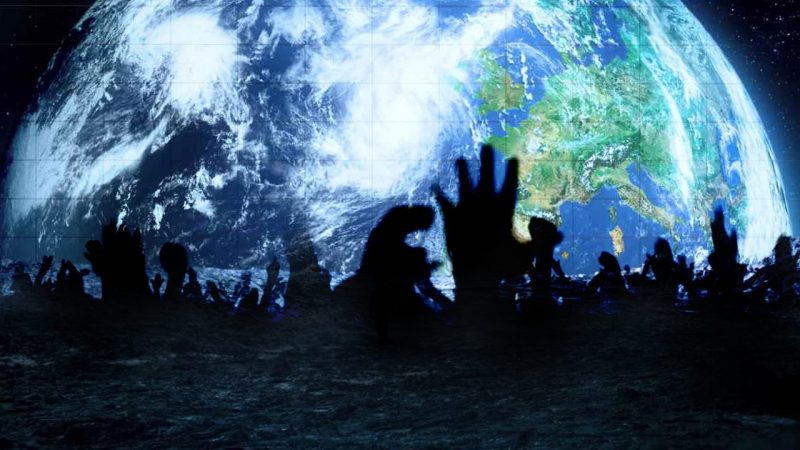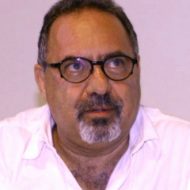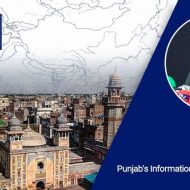This article was published on February 27 in Soberanía Magazine No. 7 of the Miguel d’Escoto Brockmann Sovereignty House of the National Autonomous University of Nicaragua (UNAN). Managua. For reasons of space, it will be disclosed here in two parts. Translation by UWI.
The pace of international events is overwhelming. Immersed in the dynamics of daily survival, it is extremely difficult to keep up with regional or global events that, given the interdependence of the processes, end up influencing and affecting local activities in any of our countries.
In this context it is valid to ask, where and at what moment in the history of humanity we are? The answer may sound a bit frivolous, but I think we are going through a tsunami of several waves that have been generated by a superposition of tectonic movements that are occurring simultaneously.
The first wave exposes the trance that means the growing questioning of democracy that emerged 2,700 years ago in Greece in the 6th century BC and that, despite having undergone great modifications throughout history, remains the essence of the Western political model, having failed and generating conflicts in its attempt to become a universal model. The second is the one that has emanated from the first manifestations of the structural crisis of capitalism, emerged around 250 years ago after the industrial revolution that began around 1760 in the United Kingdom economically and the French Revolution of 1789 politically. The third is the end of the model inherited from the Second World War and the consolidation of American hegemony almost 80 years ago. Finally, the fourth wave is the one that was formed by the end of bipolarity 30 years ago, without the world being able to stabilize a new international system.
As said before, the dynamics of day-to-day events do not allow us to see this extraordinary dimension of the international political situation. We live in a moment of disruption. Of questioning, a moment in which the best of the human condition is put to the test, but in which the most execrable and the fragility of mortals is also manifested. It is a moment of definitions. It is a moment of decisions. We live in a unique time in history.
Take a look:
1. Athenian democracy
Although there are studies that indicate that there were some previous democratic manifestations, it is considered that democracy emerged in Athens 27 centuries ago, signifying a step forward in the political development of the West, although it was born as an exclusive system that only considered as citizens men with economic capacity and belonging to the nobility. Foreigners, slaves and women were not citizens. However, the establishment of certain institutions such as the executive and legislative powers and the vote were advanced mechanisms at the time. Still, until now, democracy has not been able to resolve the representation/participation dichotomy that continues to be restricted and limited to the sectors with greater resources in society that use it precisely as a control mechanism. It is a system in crisis.
2. The industrial revolution and the French revolution
The French Revolution established a series of advanced mechanisms regarding slave and feudal societies. For example, the three powers (executive, legislative and judicial), the alternation and independence of these bodies as well as civil liberties (of expression, of the press, of association), among others.
It would have been desirable for the people to have seized power to build more just and democratic societies, however, as Lenin foresaw, in the higher phase of capitalism that we live in, the created system has reached such high levels of concentration of political and economic power, that it is these own disproportionate advances that constrain the accelerated development of capitalist accumulation at the desired levels, becoming a brake on their needs for profit. Therefore, it is the classes themselves that sustain power, that destroy the called democratic freedoms that they themselves have created.
For its part, the industrial revolution, which meant a revolutionary impulse with respect to the retrograde feudal system, today in its imperialist phase has created high levels of differentiation between exploiters and exploited. Capitalist production is increasingly concentrated in a minority that benefits from the successes and advances of development and scientific and technological advances. These revolutionary processes of the past are manifested today in a reactionary manner, representing conservative and backward forms that have no support in the medium and long term.
3. The end of the Second World War
The end of the Second World War gave rise to a new international system that had the UN as the fundamental axis on which peace and more equitable relations between peoples would be built. The UN has not been able to meet that objective, which is an expression of the obsolescence of the system.
For example, the World Health Organization (WHO) was unable to handle the COVID19 crisis, the World Trade Organization has been unable to prevent 31.5% of the world’s population from living under sanctions, the Commission on Human Rights and Its attached entities cannot shake off the protection of politicized mechanisms that are managed according to the interests of the powerful. The same thing happens with the agencies in charge of dispensing justice. The United Nations Food and Agriculture Organizations (FAO), Education, Science and Culture (UNESCO) and the United Nations Children’s Fund (UNICEF) are structures that do laudable work but are limited and restricted in resources because the missions they carry out are not aimed at favoring the interests of the powerful.
The UN experiences an intrinsic contradiction between the democratic character of the General Assembly and the dictatorial character of the Security Council and its right to veto. It must be remembered that the UN was created with 51 countries and today 194 States are part of it. Hence, today’s reality is very different from the one that gave rise to it. The original African members of the UN were 4, today there are 54. Asia started with 8 members and has today 51. The Caricom was not present at all in the beginning and today has 15 seats in the General Assembly. Can anyone think that the UN could continue to function in the same way, when there have been an evident transformation of its membership?
Article 3 of the Universal Declaration of Human Rights sets out the right to life. For its part, article 1 says that “All human beings are born free and equal in dignity and rights.” Can anyone believe that is true? The system emanating from the Second World War today is just a chimera.
Capitalism has not been able to guarantee that we are all equal in dignity and rights. Let’s see:
- 900 million people are hungry.
- 1.1 billion live in conditions of extreme poverty.
- 2.8 billion in poverty.
- 448 million children are underweight.
- 876 million adults are illiterate. Of them, two thirds are women.
- Every day 30,000 children under 5 years of age die from diseases that could have been avoided.
- More than 1 billion people do not have access to water.
- 90% of the world’s population owns 20% of the wealth.
- The 1% owns 63% of that wealth.
- Ellon Musk pays 3% taxes. A Ugandan worker who sells flour pays 40% of her income in taxes, that is, $80 a month.
- Billionaires earn $2.7 billion a day.
- 1.8 billion people in the world are homeless.
Is this the success of capitalism? Is this the world we want? The success that the media shows us with total fanfare and color through “red carpets”, long dresses, yachts and mansions, beauty contests and laurels of artists, athletes and monarchies, represents a very small part of humanity, less than 1%. That is not the reality of the planet. Capitalism failed, it only produces hunger, war and death. But they try to convince us that one day we will be able to live like that 1%, which is and will be impossible as long as the world power structure remains as it has been until now.
4. The fall of the Soviet Union and the end of bipolarity.
After the fall of the Soviet Union and the end of bipolarity, the world could not immediately structure a new international system. The last decade of the last century was chaotic without the two forces in conflict, unilateralism and multilateralism, being able to consolidate. But the terrorist attacks of September 11, 2001 allowed the United States to impose the “war on terrorism” doctrine, which in fact meant the establishment of unipolarity. We must remember President Bush’s speech on September 20 of that year when he posed the false dilemma of “either they are with them or they are with us.” That imposed the obligation on the world to “stand with the United States,” because the alternative was to “support terrorism,” eliminating any other position. The great winner of these terrorist actions was the United States.
These were times when “the end of history” was announced and it actually seemed that the United States and capitalism would be established on the planet “forever and ever.” The war was taking place in the Balkans and the American intervention in Iraq took place without any counterweight to the imperialist actions.
Everything was going well for Washington until 2008 when the real estate bubble crisis occurred in the United States, which contaminated the entire world. It was an expression of the inability of that power and of capitalism to sustain the unipolar world.
But the world had changed. A few years later, in 2012, Vladimir Putin returned to power in Russia, and in China, the same year, Xi Jinping was elected general secretary of the communist party. That same year, he was named president of the Central Military Commission and the following year, president of the People’s Republic of China.
Putin and Xi are from the same generation, one born in October 1952 and the other in June 1953. It is a post-war generation, Putin lived through the end of socialism in the Soviet Union and Xi, the death of Mao and the beginning of the reform and opening policy, both in the third decade of his life. They and their countries are the drivers of the new world that is being born.
This system that is emerging, naturally, navigates in the midst of contradictions and resistance without yet being able to be precisely defined. Even today, the struggle between multipolarity and unipolarity continues with much greater force. But this conflict began to be resolved in 2020.
To be continued…









Leave a Reply